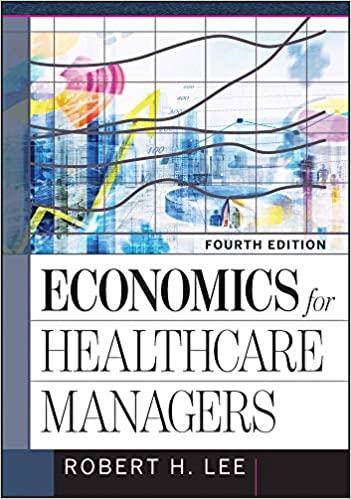In August 2015 Turing Pharmaceuticals raised the price of Daraprim from $13.50 a tablet to $750, an
Question:
In August 2015 Turing Pharmaceuticals raised the price of Daraprim from $13.50 a tablet to $750, an increase of 5,456 percent (Over and Silverman 2015). Daraprim is the only available treatment for toxoplasmosis, a rare infection that can become deadly for patients with weakened immune systems. This price increase means that an individual’s treatment could cost up to $634,000. Daraprim’s patent expired in 1953, and it can be compounded for less than a dollar per tablet (Langreth 2015). Two contradictory trends are evident. Generic drug prices have been declining in the United States since at least 2010, yet multiple generic drugs have risen in price (Ornstein and Thomas 2017). The price increases generate far more attention than the price decreases, yet the structure of the market has not changed.
In the United States, pharmaceutical prices (indeed most medical prices) are based on negotiations between private insurers and suppliers. The US market has two features that are uncommon in other countries. First, pharmacy benefit managers often act as an intermediary between insurers and suppliers. Second, the federal government plays a limited role in negotiating prices. Although the Department of Veterans Affairs negotiates drug prices for its beneficiaries, private firms negotiate for Medicare.
Discussion Questions
• Would you expect demand for Daraprim to be elastic or inelastic? Why?
• What change in the market would make demand for Daraprim more elastic? Less?
• What would the out-of-pocket cost for Daraprim be for a patient on Medicare? Medicaid?
• What would the price elasticity be after a patient exceeded the outof- pocket maximum?
• Why did other companies not start making versions of Daraprim?
• Did Turing Pharmaceuticals violate any laws or regulations when it raised the price?
• Could a company have raised the price of a drug like this in Canada? France? Australia?
• Companies have also raised prices for other off-patent drugs. Can you explain why?
• Can you offer examples of large price increases for off-patent drugs?
• What should the United States do about cases like that of Daraprim?
• Should the federal government negotiate pharmaceutical prices? Why? Why not?
• Should someone else negotiate pharmaceutical prices? Who? Why? Why not?
Step by Step Answer:






